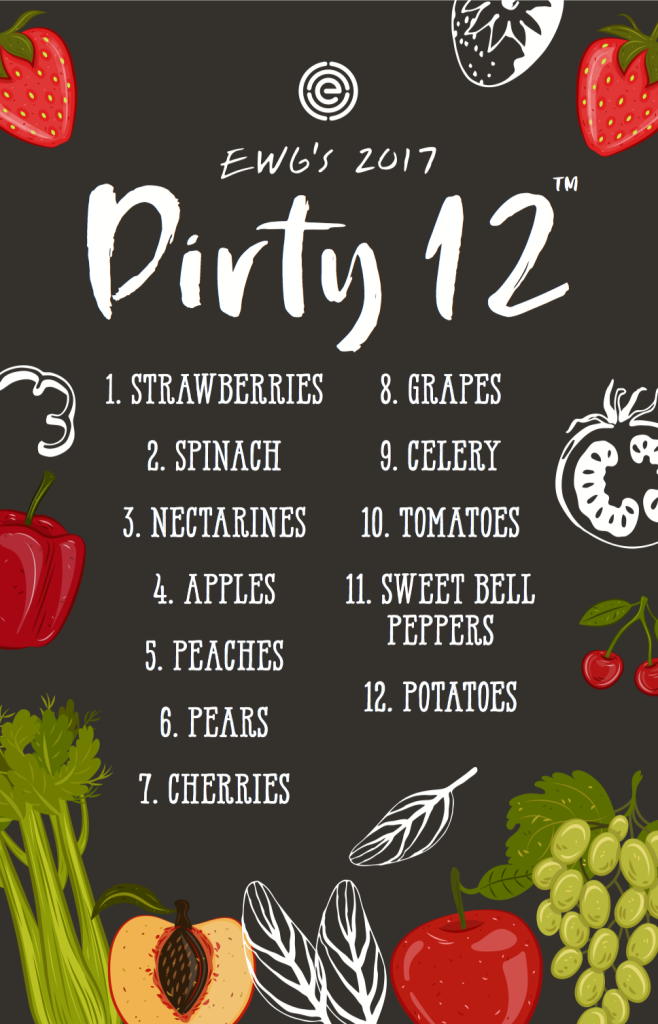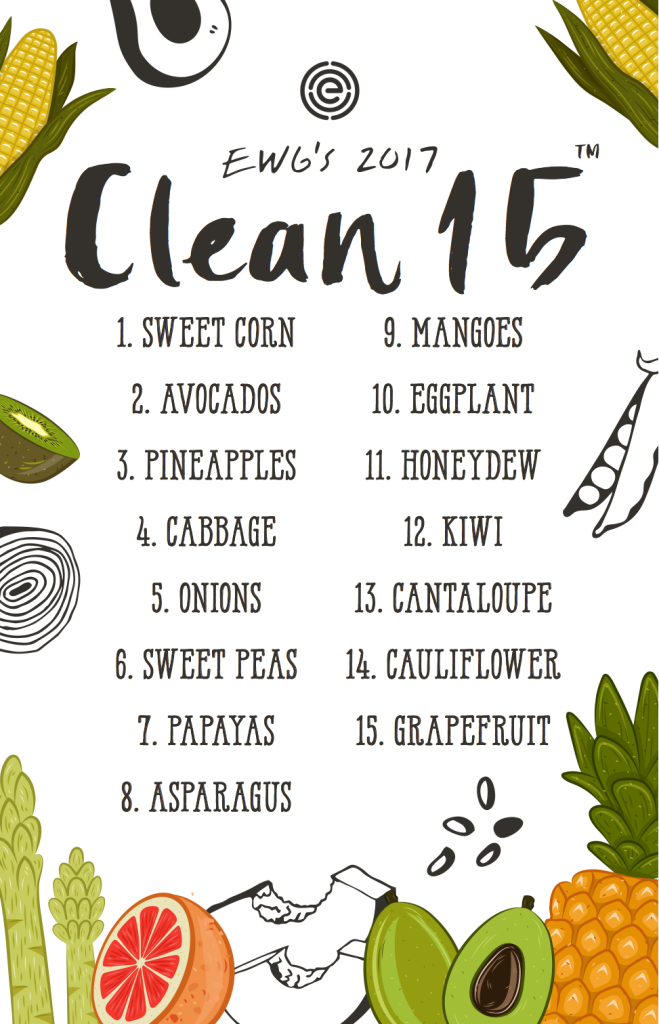By now you have probably heard about EWG’s Dirty Dozen list and the Clean Fifteen. If not, don’t feel too bad.
Above I have included both produce shopper’s guides. The guides reflect “the overall pesticide loads of common fruits and vegetables.” The fruits and vegetables on the Dirty Dozen list have the most pesticide residues. If possible, buy these organic. The Clean Fifteen lists fruits and vegetables that have the least, if any, pesticide residues. It’s okay to buy these non-organic off the shelf. Why is this important? One of the main reasons is organophosphate, which is the basis for many insecticides and herbicides. According to the EPA (Environmental Protection Agency), organophosphates are “very highly acutely toxic to bees, wildlife, and humans”.
In 2012, the American Academy of Pediatrics issued an important report that said children have “unique susceptibilities to [pesticide residues’] potential toxicity.” The pediatricians’ organization cited research that linked pesticide exposures in early life to “pediatric cancers, decreased cognitive function, and behavioral problems.” It advised its members to urge parents to consult “reliable resources that provide information on the relative pesticide content of various fruits and vegetables.” (ewg.org)
How can EWG help? Started in 1993 the Environmental Working Group educates people about what’s in their drinking water, household cleaners, farming practices, pesticides used on produce and much more. They empower you to know your environment, to protect your health and to help you make better choices.
Remember that living a healthy lifestyle is not all about proteins, fats and carbohydrates. That’s an overly simplistic view of food. Try taking a more holistic approach. Think about where your food comes from. No, not the local grocery store. Before that. Where and how were those potatoes grown? How about the fish you baked last night? Conventional farming practices, for example, not only affect the food you eat but also the water you drink, the air you breathe, the people working on the farm, the landscape and nearby wildlife. These are just a few of the reasons we have begun to buy more organic foods for our family. Buying organic helps to support sustainable practices. For more information about this topic, please read the article The Case For Organic Fruits and Veggies. It’s a great starting point.


